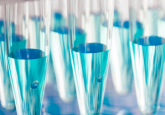Novel device can rapidly separate and identify Escherichia coli bacteria
Researchers at Arizona State University (AZ, USA) have developed a new device capable of differentiating Escherichia coli serotypes, thereby representing an important step towards achieving the rapid identification of bacteria, a significant research objective in addressing health issues caused by food-borne illness and bacterial infection.
Currently, means of determining whether or not bacteria obtained from food or an infected patient is harmful is a time consuming process, involving the growth of cultures in the laboratory prior to characterization. The team, led by Mark Hayes, Associate Professor at Arizona State University, demonstrated that by employing gradient insulator dielectrophoresis (g-iDEP), rapid and specific separation of very similar bacteria, including serotypes of a single species, is possible.
According to the study, differentiation of three serotypes of E. coli bacteria was carried out using a single g-iDEP microchannel, based on their characteristic electrokinetic properties. Whole cells were captured and concentrated using a range of applied potentials, which generated average electric fields between 160 and 470 V/cm. The team reported that the bacteria remained viable after analysis and that, as the approach allowed simultaneous concentration of analyte, detection and downstream analysis was enabled.
Hayes and colleagues concluded that the results of the study support the potential application of g-iDEP as a diagnostic tool for point-of-care or field-based analysis.
Source: Jones PV, Demichele AF, Kemp L, Hayes MA. Differentiation of Escherichia coli serotypes using DC gradient insulator dielectrophoresis. Anal. Bioanal. Chem. 406(1), 183–192 (2013).





